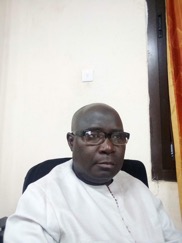
Speaking in interview with The Point newspaper, on 19 September 2024, Badjie emphasised that “HIV/AIDS remains a significant public health issue” in The Gambia, urging the public to take proactive steps in testing and treatment as part of the national effort to combat the virus.
“HIV/AIDS continues to be a pressing concern in The Gambia, with 26,368 individuals currently living with the virus,” Badjie stated, underscoring that “HIV is still very real in the country”.
He urged the public to recognise that they are either affected or infected by the virus in some way.
“HIV should not be viewed solely as a health issue but as a cross-cutting problem that impacts all aspects of society,” he said. While the Ministry of Health leads the response, everyone has a role to play by getting tested to know their HIV status, he emphasised. "If the result is positive, we will help link the person to medication. If negative, we will counsel them on how to maintain that status.” He warned: “HIV is an infection one can contract at any time and in any place."
The National AIDS Secretariat is actively providing services to the Gambian population through 67 HIV testing sites and 23 treatment centres across the country. In addition, there is a special focus on preventing mother-to-child transmission of HIV, ensuring that infected mothers can receive treatment to prevent their children from contracting the virus. "This can only happen when people know their status," he stressed.
Of the 26,368 people living with HIV in The Gambia, 65% are currently receiving treatment, and 61% have achieved viral suppression. Despite these achievements, Badjie expressed concern over the continued spread of the virus and called on all citizens to get tested and know their status.
“We’ve made remarkable progress in reaching out to people, but not everyone who knows their status is willing to accept that they have HIV,” Badjie pointed out. He thus urged stakeholders and the wider community to come together and join forces in the fight against HIV/AIDS, calling for a national effort to stop the spread of the virus.
By increasing awareness, encouraging testing, and providing treatment, the National AIDS Secretariat aims to curb this rate, but Badjie emphasised that this can only be achieved through collective action.





